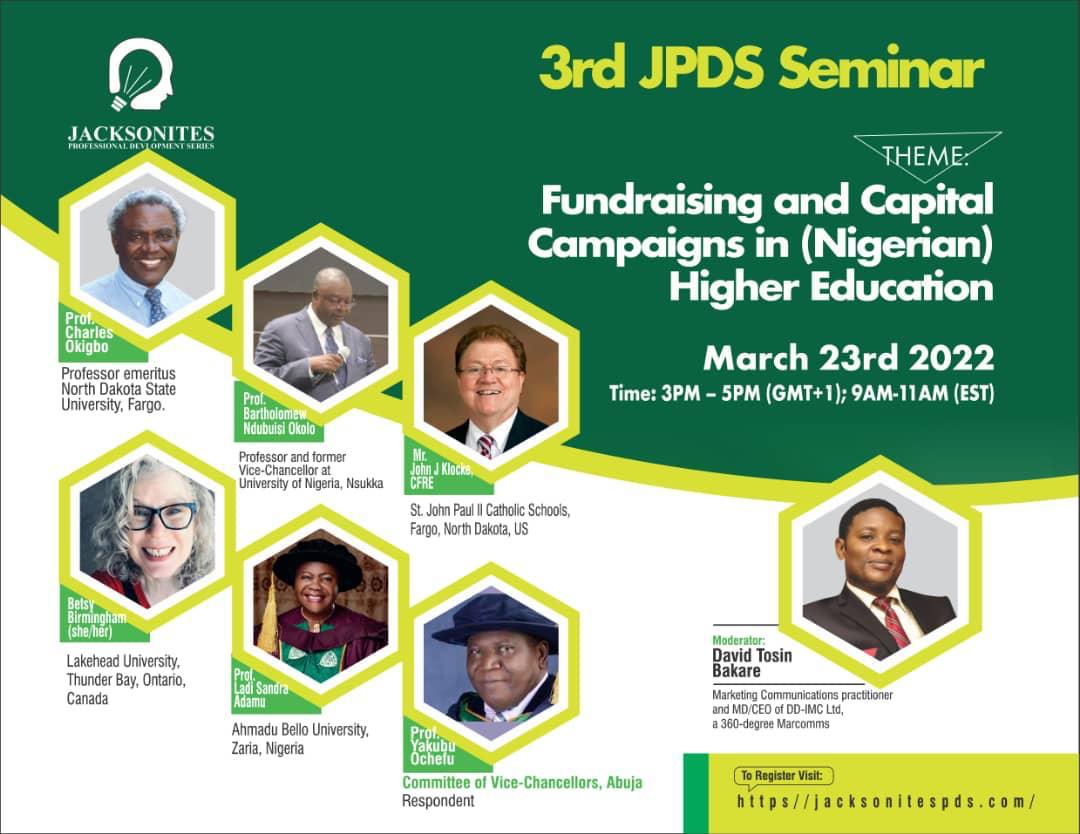Tag: UNN
-
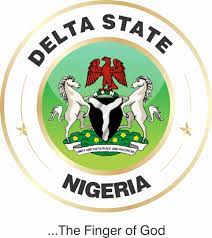
Delta PDP congratulates DR. Uduaghan on award of Doctorate (Honoris Causa) from UNN
The Peoples Democratic Party in Delta state has sent congratulatory messages to the former Governor of Delta State, on the award of the prestigious Doctor of Public Administration (Honoris Causa) by the University of Nigeria, Nsukka (UNN).The salutation was contained in a congratulatory message issued by the State PDP Publicity Secretary, Dr. Ifeanyi Osuoza, which reads: “Your Excellency, Dr. Emmanuel Eweta Uduaghan, Delta State Peoples Democratic Party, PDP heartily congratulates you on the conferment of the Doctor of Public Administration (Honoris Causa) award, by the University of Nigeria, Nsukka (UNN).“We are indeed not surprised that the famous University of Nigeria, Nsukka, UNN, has found in you, a worthy recipient of this prestigious award, long after you left office and honorably side-stepped out of the national spotlight, with admirable decorum, dignity, and equanimity.“Your leadership track record as a two-term PDP Governor, hallmarked by your exceptional disposition towards peacebuilding as the core substructure for a development-driven society, which indeed was one of the cardinal elements of your visionary Three Point Agenda, complemented by the other components of Infrastructure and Human Capital Development, speaks volumes for the sustainable peace Delta State enjoyed, during your tenure and the collective unity and harmony amongst many members of our party, in the run-up to the 2023 general elections””We also recall with great pride, the brilliant maiden paper you delivered during the annual lecture series graciously endowed in your name, for the Professor B.I.C Ijomah Centre for Policy Studies and Research, University of Nigeria, Nsukka (UNN), in 2019, which still resonates with great import, clarity, and relevance in our national polity, four years after””Congratulations once again, Your Excellency, on this well-deserved recognition by one of the leading tertiary institutions of learning in our country. We have no doubts whatsoever that this award, the precursor of many to come, will greatly energize your impressive efforts and advocacy in the pursuit of sustainable peace in our society””We are indeed proud and humbled, to embrace you as one of our very own; leader, mentor, and elder statesman, in the PDP Family” -
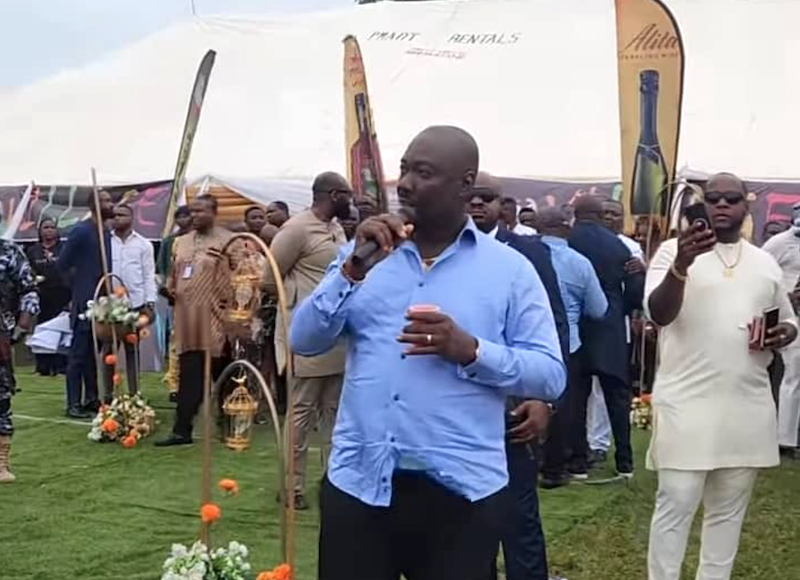
Obi Cubana reveals secret of his success
Popular businessman and Chairman of Cubana Group, Chief (Dr.) Obinna Iyiegbu, popularly known as Obi Cubana, has disclosed the secret of his success.
TheNewsGuru.com (TNG) reports Obi Cubana made the disclosure in the commencement speech at the 50th convocation ceremony of the University of Nigeria Nsukka (UNN) on Friday.
Speaking, Obi Cubana, an alumnus of UNN, said he was happy to be invited to inspire and motivate graduates and undergraduates of his alma mater which made him what he is now.
“Today, I have come back to this convocation hall as homecoming, to share my story, so that, you can learn some lessons from my experience, and hopefully, get inspired and motivated to confront the future with greater confidence. The secret of my success is focus, integrity, hard work and the special grace of God,” Iyiegbu said.
TNG reports Obi Cubana instituted some prizes like N1m Cubana prize for the best graduating student in every convocation of the University. He also name a N1m Cubana prize for the best graduating student of the Department of Political Science, “the department that produced me”.
Earlier, Prof Charles Igwe, the Vice-Chancellor of UNN had said the University decided to bring Obi Cubana, who graduated from the institution in 1998, to inspire and motivate graduates and undergraduates of the university.
Prof Igwe said 246 graduates bagged first-class degrees in the University’s 50th convocation ceremony.
In his remark during UNN’s 50th convocation ceremony for the 2019/2020 session to confer bachelor’s degrees on 14,308 graduates, Igwe urged all the graduates to live up to expectations in all they do as the country was in dire need of truly educated men and women.
“In this UNN 50th convocation, a total of 14,308 will receive bachelors degrees of the university.
“246 bagged first class, 5,092 made second class upper, 7,865 made second class lower, 2,088 made third class while 17 went home with pass.
“As an alumnus of this university, I urge you to live up to expectations by being good ambassador of the UNN and good citizen of the country,” he said.
The VC said all the graduating students were unique and special because they were the golden graduates of the university’s 50th Convocation.
Igwe urged the graduands not to allow the prevailing socio-economic conditions in the country, especially unemployment, to diminish the value of their graduation.
“As you leave the university to face the real world, do not allow the prevailing socio-economic conditions in the country to diminish the value of your graduation.
“With focus, integrity, hardwok and absolute trust in God, you will rule the world with the knowledge you have acquired as lions and lionesses,” he said.
-
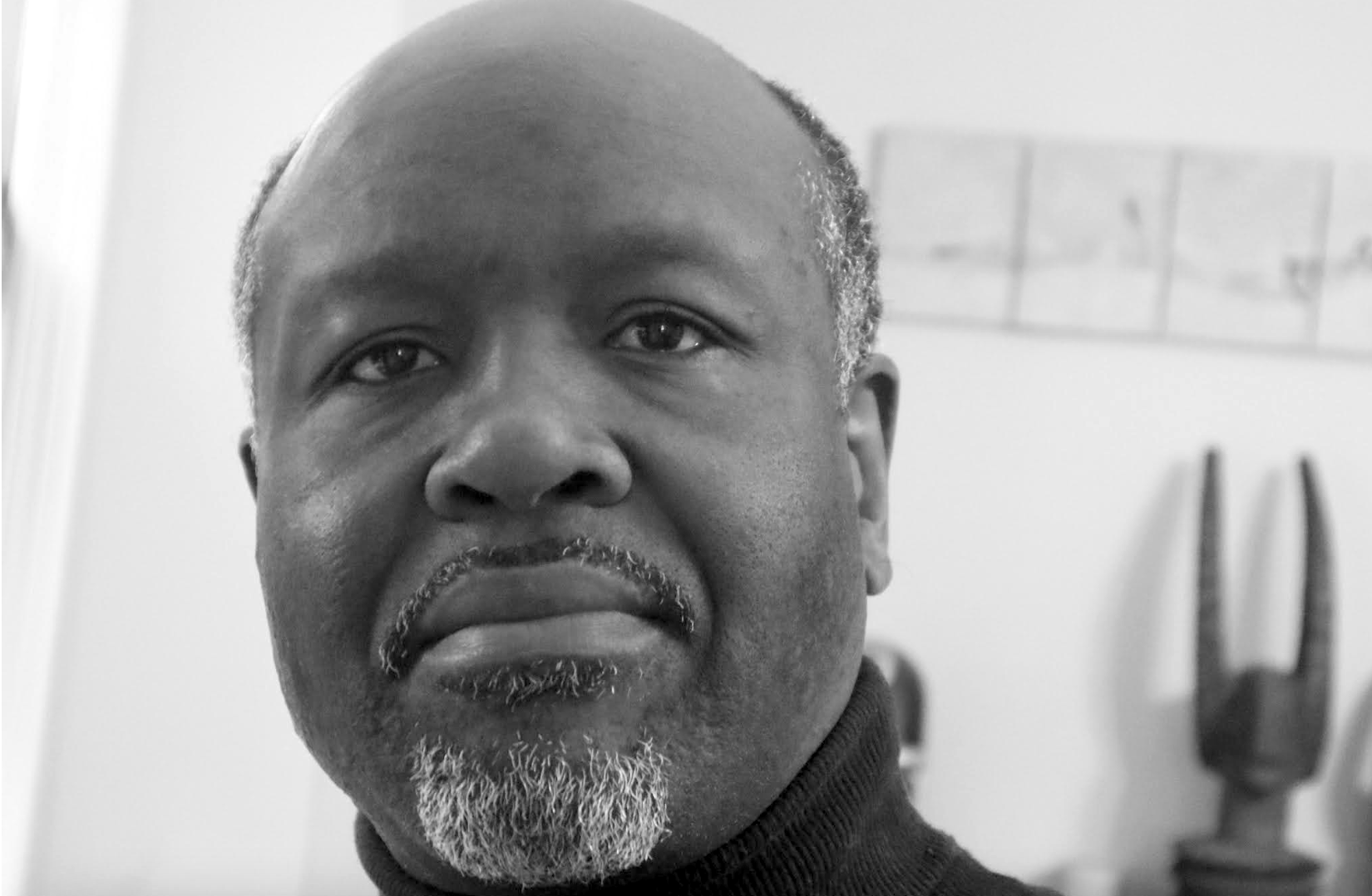
Leading Nigerian academic assumes historic role at Oxford University
A leading Nigerian academic in the United States, Professor Chika Okeke-Agulu of Princeton University has assumed duties at Oxford University, one of the oldest and most respected educational institutions in the world, as a distinguished professor.
Though announced last year as Slade Professor of Art for the 2023 academic session, Professor Okeke formally began teaching last week at the most prestigious British university established in 1096.
He is the first African to hold this position since the chair was endowed in 1870.
According to Oxford University, the chair of Slade Professor is “always a figure of international standing in the study of visual arts”.
“This is a great honour to Nigeria and the African world, declares Toyin Falola, himself the preeminent of History at the University of Texas at Dallas.
“He consistently sets Nigeria on the path of global recognition for something good, and this is easily proven by his achievements over the course of his career”, says Falola about Okeke-Agulu who was just last year among the 85 outstanding scholars to become fellows of the highly revered British Academy, the United Kingdom’s national academy for the arts and social sciences.
The school valedictorian at the University of Nigeria at Nsukka some 29 years ago who went on to receive a doctoral degree in Art History from Emory University in Atlanta, Georgia, United States, Professor Okeke-Agulu has written globally acclaimed books on such distinguished African artists as El Anatsui, Obiora Udechukwu, Demas Nwoko, and Yusuf Grillo.
“Chika has helped to bring the works of these great men to the attention of the world and interpreted them in a most uncanny way”, notes Ndidi Dike, a top Nigerian sculptor and painter who also graduated from the same department as Professor Okeke-Agulu at the University of Nigeria, Nsukka.
“He is worth his weight in gold, and remains a great ambassador of the Nigerian, nay African, people everywhere.”
Professor Okeke-Agula hails from Umuoji in Idemili North Local Government Area of Anambra State.
-

Tribute to Professor Charles Okigbo at 72 – By Emma Esinnah
In May this year, I received a message that my uncle was involved in a car accident the previous day and had passed on that morning, at 82. He was a good man. Though I had always tried to show him kindness from time to time, I had planned bigger things I would do for him in December 2022. But he passed on in May.
That experience further drove home to me the aphorism about life: that kind word you need to say to someone; that good deed you need to do to someone; do it today.
Today, I choose to say just a few words about one of the most remarkable professors of mass communication that Nigeria has ever produced. He is Professor Charles Chiedu Okigbo, who turns 72 today, December 6, 2022.
I do not have to wait until his 75th or 80th birthday. Or worse still, when he is no more. I have learnt that it is better for a man to read the tributes to him on a flimsy postcard than that great epitaph on his tombstone that he would never read. And who knows between the two of us, who will go before the other. Earth’s journey is not “First Come, First Go”. And in the case of Okigbo, one might have to wait for long because longevity genes run in his veins – his mum departed only recently, at over 100 years.
Those who studied Mass Communications (in the famous Jackson Building) at the University of Nigeria, Nsukka, during the eighties could never forget the youngest of the herd of true academics in that department. The pack was led by the enigmatic Professor Sylvanus Ekwelie, who is perhaps the greatest teacher of communication still alive in any corner of the globe today. Following him, in no particular order, were Okonkwo, Idemili, Agba, Ume-Nwagbo, Ogbodo, and the youngest of them at the time, CC Okigbo.
If Ekwelie was enigmatic, Okigbo was simply charismatic. Every student in the department fell in love with him at first sight. At 35 then, he already possessed five degrees – two Ph.Ds, two M.Scs and a bachelor degree. He has since gone ahead to acquire additional three, bringing his total haul of degrees to eight, from five different universities, in three continents.
A scion of the famous Okigbo family of Ojoto in Anambra State, very handsome, with so much qualification, Charles Okigbo had every reason to be an arrogant lecturer, but he chose to be humble and treated everyone with utmost courtesy and decency.
He was very brilliant and everyone knew it. Even Professor Ekwelie once described Okigbo to our class as a “big brain.” Such validation from the oracle himself doesn’t come cheap!
Okigbo’s lectures were so practical and enchanting one never wanted to miss them. No one wanted to miss his classes on Advertising and Public Relations or International Communication or Communication Research. The glamour he brought to his work made many of his students to fall in love with teaching and the subject areas he taught. He loved the lecturer job. And he loved the university community. Everyone could see he was not struggling financially. Even at that time, he had three cars – his beloved Toyota Celica car that had boldly on the number plate: “Nsukka – the University City; a Peugeot 504 and a VW Beetle. For this generation, those cars may not sound like great acquisitions, but if one gets to know that some professors then had just VW Beetle or Citreon or even the Peugeot 504 as their only car, perhaps it might register a little better.
Okigbo was not your academic who pretended about money or cars. He loved and still loves cars and he doesn’t hate money (don’t forget he is from Anambra State), but not cheap money. He believed in the American model of gown meeting town. Before side gigs (not side chicks o) gained currency in business lingo, Okigbo was already master of the game! He was always writing proposals for image research consultancies, as much as ethically allowed. Some of his proposals clicked once in a while. And some of us who were close to him were brought in to work on the projects. On one of the occasions he even paid us some money. When I told someone how much he gave me for the project, the person told me “this man is just using you people.” My answer was “I would like to be used more often!” He was a special breed. Most lecturers then and now would not as much as acknowledge their student who contributed to a project, not to talk of paying anything from the proceeds of the effort.
Okigbo is not the Professor who doesn’t know what is happening in town. He encourages you to take interest in the budget or any government policy and ask yourself, what “can I do for myself in spite of how things look.” He would never have got involved in some of the mean things some lecturers are associated with today. He always believed his brain would give him the money he would need. And he has been proved right.
When he takes interest in a student he goes all the way to encourage that person. In 1988/89, I was doing my NYSC programme in Bori, Rivers State. Professor Okigbo had something doing in Port Harcourt, and from there he drove the 60km from Port Harcourt to Bori to see me. I was thrilled!
Okigbo recognizes and celebrates others ahead of him. Accomplished in his own right as he is, he remains in touch with his former senior colleagues at Nsukka. He reaches out often to the oracle, Professor Ekwelie, as well as to Ume-Nwagbo, who is now in his 90s.
What is actually most remarkable, thinking about Okigbo on his 72nd birthday today, is that he was only 34/35 years old then when he was so full of knowledge and wisdom and made so much impression on us then in Nsukka. It’s a challenge to us all, 34 years after graduation (not of age!), no matter what our sphere of influence might be.
It is saddening that the later crop of the UNN Mass Communication graduates never experienced Okigbo and people of his ilk, because the system soon proved unworthy of him. Soon after we left, the world outside spotted him. In 1990/91, he was hired as the founding Registrar/Chief Executive of Advertising Practitioners Council of Nigeria (APCON). That was double portion of blessing for me, because he was also adjunct lecturer at University of Lagos, and taught me in my M.Sc. class as well. On completion of his term at APCON, he became Executive Secretary of the African Council on Communication Education (ACCE) in Nairobi, Kenya, and then back to US where he had studied. He rose to become head of department of Communication at North Dakota State University, Idaho, where he is now an emeritus professor of Strategic Communication.
Okigbo is a genuine family man. You couldn’t have been close to him if you didn’t know his wife, Carol, (now a professor too) and “Charlie’s Angels”, his three daughters, before his son, Kene, was born. He is proud of them, and rightly too.
Though still in far away United States of America, Prof is always close-by. He remains in touch with, not just his former students, but the entire Naija. He knows what is happening in Nigeria more than some of those who live and work in Nigeria. And he closely follows the progress of his former students.
Okigbo’s life shows that there is no end to learning. With all that he knows, he is still reading voraciously, especially in the areas of communication research, strategy and strategic communication – the love of his life. He is the only one who gives books as Christmas or birthday present! From him we also learn commitment to one’s vocation, humility, hardwork, love of family and loyalty to friends.
The joy of today is that one is able to tell him how much he is appreciated, while he has a chance to read it. Unfortunately, there is so much to say that one write-up cannot do it. But let’s start at all.
I know all who have passed through him will join me today to say: Happy Birthday to Prof. Charles Chiedu Okigbo at 72.
EMMA ESINNAH, Mass Comm graduating class of 1988.
-
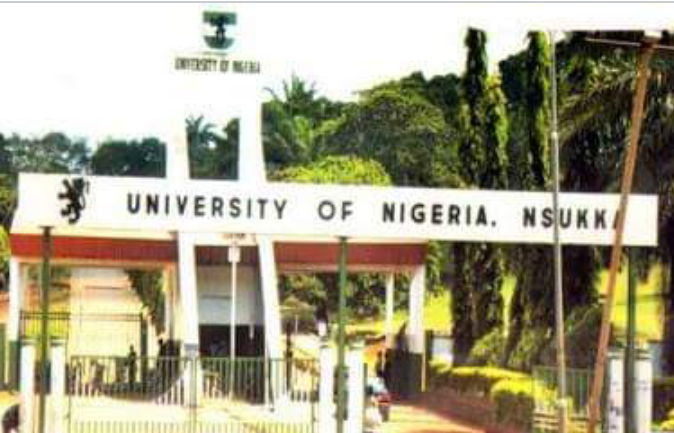
For UNN Mass Comm Alumni, a new high in alumni-Alma Mater collaboration – By Ikem Okuhu
By Ikem Okuhu
What began as a gathering of graduates of the Mass Communication Department of the University of Nigeria, Nsukka, otherwise known as Jacksonites, has gradually begun to bear fruits many did not envisage. A little over two years ago, some brilliant and successful Jacksonites, ably led by Chido Nwakanma, created a WhatsApp group for products of Nigeria’s pioneer journalism school. Today, the Jackson Alumni Network, as the organization is known, has metamorphosed into an active group, dedicated to the upliftment of the department and continuous professional improvement of all its members.
Alumni associations, the world over, have always been strong forces of change. Many, as it is the case with the UNN Mass Communication group, make academic, financial and intellectual contributions to their mother department. But it is not often that one finds those who take this further by taking interest in the continuous professional development of its members.
The alumni of the Jackson Building, as the Mass Communication department has been known for years, have the professional and career leverage to undertake this and even more. But then, so do others from other departments and institutions. What this group has going for it, however, which others might not possess in similar abundance, is the will to share with one another and empower those not equally endowed. Here is a group of people who collectively believe in the democratization of knowledge. With persons of influence and career acclaim in the academia, marketing communications, leadership, consulting and practically every sphere of human endeavour, it is possible to begin to see why it was easy for them to turn what most others utilize for social gatherings to feed their nostalgia, into a portent fountain of community intellection.
Prof Chinedu Mba, a 1987 graduate of the department, who is the orchestra director of the carefully selected group known as the Jackson Professional Development Series (JPDS), says the whole idea began with the understanding that there was the need to give back to the department.
“It is the crystallization of the passion Jacksonites have for social responsibility and continuous personal and professional growth.”
Jacksonites are graduates of the foremost Department of Mass Communication in Sub-Saharan Africa, previously known as “The Jackson College of Journalism” when it was first founded in 1961.
Prof Mba’s perspective was also shared by another graduate of the department, Celestine Achi, a digital marketing expert who plies his trade in Lagos.
“The JPDS primary goal is to provide an engaging and impact-driven platform for the personal and professional development of students and professionals in the field of communication.”
Prior to the birth of JPDS, members of this group had embarked on several other projects to enhance the academic pursuits of students of the department. First, they started with donating books to the department’s library. Then, they scaled this to whole new heights by embarking on fundraising for the construction of a brand-new building for what is envisioned to be a School of Media and Communications Studies. Interestingly, by the time this unique school was being envisioned, the National Universities Commission was yet to come out with the new policy that was designed to break Communications studies in Nigerian universities to about seven departments, covering Journalism, Digital Communications, Film Studies, Advertising and Public Relations. This clearly points to the farsightedness of the leaders of this group of elite “communications” scholars and professionals.
Loads of credit to what the vision has become goes significantly to some of the youngest members of the group, notably, Mr. Jerry Agada (a 2013 graduate) and Dr. Chidiebere Nwachukwu (a 2011 graduate). It was the two of them that decided to up the ante by organizing periodic seminars for Jacksonites. Prof. Pat. Utomi (a 1977 graduate), the President of Jacksonites Worldwide – the Alumni Association of Jacksonites – was the speaker at the first seminar. Then, the seminars did not have a formal structure and were pretty irregular.
That was when Prof Mba stepped in.
Saddened by the waning interest and participation in the seminars, she reached out to Mr. Agada and Dr. Nwachukwu, and mooted the idea of giving the initiative a formal structure and a chance at sustainability. After a couple of meetings, they agreed that a setting up a steering committee would be the first step. The trio drew up a list of potential Steering Committee members and Prof. Mba was given the task of selling the idea. As is her practice, Chinedu went about this task with dedicated passion and conviction and “recruited” eight Jacksonites to steer the initiative with her as the Chair.
This committee held several meetings lasting into the wee hours of the morning. At these meetings they crafted the name, mission, and vision as well as a strategic plan. With these in place, they presented the idea to the Jacksonites Worldwide late in 2020. Three working groups (Logistics, Publicity & Mobilization, and Sponsorship) were set up in line with the strategic plan. Since its set up, Jacksonites Professional Development Seminar (JPDS) series has held 4 well -received and attended international virtual seminars. Experts in various fields of communication and human capital development have helped share profound knowledge in various fields. They include, Prof Pat Utomi of Centre for Values, Lagos, Nigeria; Prof Nduka Otiono of Carleton University, Ottawa, Canada; Dr Marcel Mbamalu of Prime Business Africa, Lagos, Nigeria; Mr. Obi Emekekwue, formerly of Afrexim Bank; Dr. Isah Momoh of Ed-John Institute of Management & Technology, Ikorodu, Nigeria; John Klocke of St. John Paul II Catholic Schools, North Dakota, USA; Prof. Bartholomew Okolo, former Vice Chancellor of the University of Nigeria Nsukka; Prof. Ladi Adamu of Ahmadu Bello University, and Prof. Yakubu Ochefu of the Committee of Vice-Chancellors, Abuja, Nigeria, Professor Emeritus Charles Okigbo of North Dakota State University, USA, and Chido Nwakanma.
The JPDS has added two new brands, Knowledge Hub and MediaUp Conversations, to its stable.
Knowledge Hub, as the name suggests, is dedicated to the creation and exchange of interdisciplinary research-based knowledge and processes that advance scholarship, solve societal problems and accelerate development. To date, Knowledge Hub has held 5 well-attended international research seminars facilitated by globally respected academics such as Dr. Nuhu Gapsiso of University of Maiduguri, Dr. Kathrine Tulibaski of North Dakota State University, Dr. Adeniran of Lagos State University, Lagos, Nigeria; Dr. Mustafa Malan of Bayero University, Kano, Nigeria, Prof. Victor Ayedun- Aluma of the University of Jos, Dr. Karen Okigbo of University of Chicago, and Prof. Rotimi Olatunji of Lagos State University, amongst others.
Jerry Agada, a journalist and perhaps the youngest member of the team of eggheads thinks the project has been of immense value to the group, saying that sharing knowledge enables society to be better.
“As a personal philosophy, I believe the sky is big enough for all birds to fly. Additionally, the Ubuntu philosophy drives what we do at the JPDS, where we believe that together, we are better; where the development and success of an individual is hinged on the collective and vice-versa,” Agada stated.
Prof Mba, it seems, may have been responsible for invoking this “Ubuntu” philosophy in her team and by extension, the entire body of the UNN Jacksonites. In various interactions with her, she echoes this uniquely African philosophy and has always ensured that she signs off all her emails, with the word as compulsory mention. Could it be just her life choice, or is there a culture graduates of the department imbibe that makes them appreciate the values inherent in living, one for all, and all for one”?
Whatever is the reason, the project, which Mba described as a “child of destiny” is a success story worth sharing and which even the drivers believe should be scaled to impact more people.
Dr Nuhu Diraso, a friend of the JPDS, and faculty member at the University of Maiduguri, thinks the project should go beyond the alumni circles. For him, a lot more Nigerians should know about it, not just for the benefits of sharing professional and academic knowledge but also to spread the message of selfless giving to more Nigerian universities.
“There is dearth of knowledge among students of Nigerian universities today and this has been because nearly all the people with valuable field experiences that could shape the foundational lives of students, are out there in the field, far removed from where they would help shape the minds of students in their critical formative stages of adulthood. But if this project is enhanced for wider participation, I think it will lead to a replication by the alumni of other departments in other universities, the end will be a more empowered graduates, and ultimately, a more employment-ready workforce,” Dr Gapsiso said.
Not thinking too differently, Agada would want more direct interactions between the members of the alumni club and students.
Says he: “The JPDS can organize campus tours in collaboration with other alumni associations, where academics, professionals and students converge in what will be a meeting point between town, gown and the academia, across different campuses. The experience will be beneficial to all parties as such a convergence.”
Agada further suggests that the JPDS is ripe for physical events such as conferences and symposia, This, he believes, will pave the way for a transformation into a global hybrid and authoritative platform in the global communications landscape with annual referenced industry report.
With the depth of intellectual resources at the disposal of the Jacksonites, there is no doubt that these are achievable, if the same will and willingness that brought the JPDS and the Knowledge Hub into existence are applied.
-
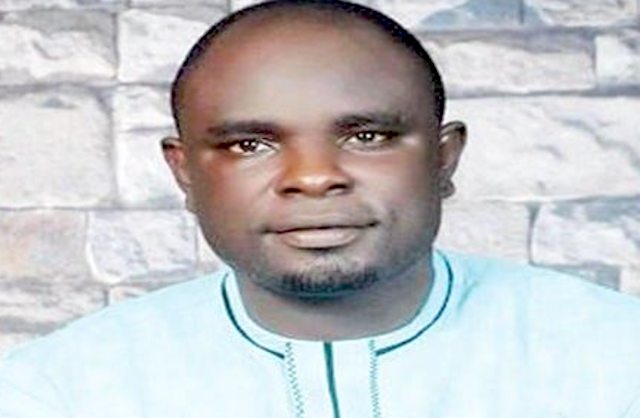
ASUU strike: How Nigerian universities can become self-sufficient – Lecturer
Dr Kingsley Ugwuanyi, a senior lecturer and researcher at the University of Nigeria, Nsukka (UNN), has shared insights into how Nigerian universities can become self-sufficient in the face of the Academic Staff Union of Universities (ASUU) impasse with the federal government.
Recall that the National Executive Council (NEC) of ASUU declared an indefinite strike which came into effect on Monday, August 29, after months of talks with the federal government failed to reach a compromise.
The union accused the federal government of “high-level deceit” since the renegotiation of the 2009 agreement opened in 2017 and ASUU insists it will not call off the strike action until the government takes concrete steps toward implementing its demands.
These demands include the payment of earned academic allowance, review of the National Universities Commission (NUC) 2004 Act to tackle the proliferation of universities, implementation of 26 per cent budgetary allocation to the education sector, implementation of the University Transparency and Accountability Solution (UTAS), payment of withheld salaries and non-remittance of check-off dues of unions, salary upgrade and the constitution of visitation panels.
In an exclusive interview with TheNewsGuru.com (TNG), Dr Ugwuanyi, an expert in English sociolinguistics, who is also a consultant to the Oxford English Dictionary, provides an in-depth perspective on what the real issues are and what he thinks might be the way forward.
On the way forward, Ugwuanyi averred that Nigerian universities must become more business-oriented to provide services to meet the demands of the area where they are located, and profit therefrom.
“A faculty of agriculture, for example, should be able to produce sufficient food to meet the demands of the area where it is located, and profit therefrom,” the senior lecturer said while stressing that “primarily, university education is funded by the government”.
Ugwuanyi said: “I have taught at two universities in the UK – the University of Northumbria and the University of Newcastle. I did my PhD in the UK as well and it was funded by Northumbria University. So how is university education funded in the UK, for example?
“Primarily, university education is funded by the government and I’m using the UK example because that’s the one I’m most familiar with. But there are other sources of funding like endowment funds from NGOs, private individuals, alumni, companies, or establishments that have relationships with these universities.
“Do we have all of these sources of funding in Nigeria? Just a few. In the University of Nigeria Nsukka, for example, there is an endowment fund by Shell Petroleum Development Company (SPDC) in the department of Geology. This is the example I can mention off the top of my head right now, but there are not as many of them in Nigeria as you find in the UK.
“Do alumni help in Nigeria? Maybe also to a very small extent, but the fact is that the bulk of university funding in the UK comes from the government. The government has annual grants and allocations to universities and most times these allocations are given according to the research output of these universities.
“There are also research councils for humanities, social sciences, engineering and medicine that individual lecturers or researchers attached to universities can apply to directly and have their research funded, following clearly stipulated, transparent and often merit-based procedures.
“For instance, in Nigeria, there is the TETFUND which should do that, but you know how Nigeria is. I remember applying to TETFUND in 2015 to attend a conference in Germany, I didn’t as much as get a reply, not even a response that my application was not successful.
“But I knew some other people who got the funding because they know someone in the university administration or someone that works in TETFUND”.
Read an excerpt of the interview here…
-
NUC approves Enugu Varsity for Medical and Applied Sciences
The National Universities Commission, NUC has granted approval to the Enugu State University for Medical and Applied sciences.
There probably couldn’t have been more encouraging words by a head of a regulatory agency about the birth of a new outfit under his supervision.
Said Prof. Abubakar Rasheed, Executive Secretary, National Universities Commission (NUC), while presenting a letter of recognition of the new Enugu State University of Medical and Applied Sciences (ESUMAS), Igbo-Ano, Enugu State, to the State Governor, Ifeanyi Ugwuanyi, when the Governor and his team visited the Commission’s office in Abuja on Thursday last week: “With effect from Thursday, 21st April, 2022, the Enugu State University of Medical and Applied Sciences, Igbo-Ano, Enugu State, has been recognised as the 219th university in Nigeria.”
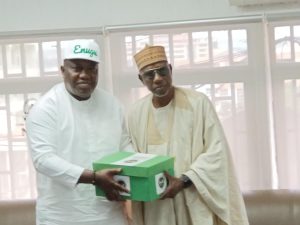
“We, hereby, pledge our support to the smooth take-off of the university. We also encourage the university’s management and Enugu State government to take advantage of the professional and technical supports which the NUC is ever ready to provide for the smooth running of universities in Nigeria,” Prof. Rasheed stressed.
“By this recognition letter, the Joint Admissions and Matriculation Board (JAMB), Tertiary Education Trust Fund (TETFund) and the National Youth Service Corps (NYSC) have been notified of the establishment of this university.”
Clearly elated by the birth of SUMAS, one of only three such universities in Nigeria, Professor Rasheed also suggested to the management of the university to establish biomedical engineering and other genetic programmes to complement the effort of the only one university (name withheld) currently running the programme in Nigeria, further charging the university to strictly abide by the laws guiding the running of universities in Nigeria.
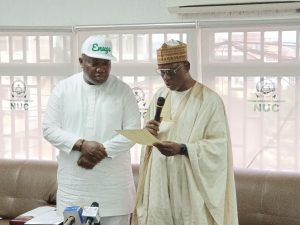
The NUC Executive Secretary urged the university authority to also feel free to approach NUC for proper guidance, where in doubt, to avoid violation of rules of engagement that might attract maximum sanctions from the Commission.
Indeed, if there was any further proof to Governor Ugwuanyi and his team that SUMAS was a step in the right direction, a great idea berthed in the land of rolling hills, Prof. Rasheed’s inspiring words came very much handy. For, here is a university community, perhaps the only one in Nigeria, that has gone without a medical school/ teaching hospital for all of 60 years plus!
The University of Nigeria, Nsukka (UNN), founded in 1955 by Dr. Nnamdi Azikiwe, the late Owelle of Onitsha and first President of Nigeria (1963-1966), took off in 1960 with the main campus at Nsukka and the second campus, which was to host the Faculties of Medical Sciences and Business, in Enugu, then capital of Eastern Region. A second chance to gift Nsukka with a medical school/teaching hospital was stymied by the State government when, in about Year 2000 or thereabout, it changed its mind about the mutli-campus status of the State University of Science and Technology (ESUT) and moved the university’s medical school/teaching hospital from Nsukka to Enugu where it converted a general hospital, the Parklane General Hospital, GRA, Enugu, into the ESUT Teaching Hospital.
SUMAS stemmed from the Governor Ugwuanyi Administration’s decision to restore the original multi-campus status of ESUT whose medical school/teaching hospital Nsukka was originally supposed to host. However, along line, it became necessary to tinker with the law in order to avoid the huge logistics problems and systemic disruptions that relocating the superstructure of ESUT medical school to Nsukka might cause in the areas of teaching and hospitalizations, hence the idea of an entirely new, specialized university.
SUMAS is, thus, a child of necessity, to be sure, a product of strategic thinking. It is like killing two birds with one stone (to borrow the time-worn saying about leveraging a need to create two opportunities): ESUTH in the Enugu metropolis was left intact while the need for a medical school/teaching hospital in Nsukka was also comprehensively met.
Governor Ugwuanyi made that need even more poignant when he declared, at the license presentation meeting with Professor Rasheed, the NUC boss, that the concept of the University of Medical and Applied Sciences was borne out of the State government’s desire to improve the medical manpower level in the State and beyond.
“Annually, thousands of students apply to study medicine in public institutions in Nigeria, but only few are privileged to secure admission, not because they are unqualified, academically and otherwise, but because of insufficient space. This is the gap we want to bridge,” Governor Ugwuanyi declared.
“For instance, the University of Nigeria, Nsukka, otherwise known as UNN that is close to us, has 180 slots for students that desire to study medicine. This is out of hundreds of thousands of candidates that apply for the course, annually. This is discouraging.”
With the coming of SUMAS, the number of such admission slots for medical students, especially in the university’s catchment area of Enugu and environs, is expected to be shored up significantly.
Assuring the NUC that necessary arrangements, financially and otherwise, had been made to ensure smooth take-off of the university at Igbo-Ano, Ugwuanyi then proceeded to present the law establishing it, academic brief, master plan and other documents of the university to NUC, assuring also that the institution would be different from others as it would churn out graduates that would initiate great transformation in the medical field in Nigeria and beyond.
Governor Ugwuanyi expressed gratitude to the NUC for the speedy consideration of the documents submitted for approval, promising that the Enugu State government would give the Commission maximum cooperation as well as comply with all the guidelines governing the operation of universities in Nigeria.
According to Professor Malachy Okwueze, Deputy Chief of Staff to the Enugu Governor and Founding Vice Chancellor of Coal-City University, Enugu, SUMAS is expected to take off with three Faculties, namely, 1) Faculty of Clinical Medicine and Dentistry, a hybrid of Faculties of Clinical Medicine and Dentistry 2) Faculty of Basic Medical and Allied Health Sciences, a hybrid of Faculties of Basic Medical and Allied Health Sciences and 3) Faculty of Pharmacy.
On infrastructure, Okwueze said: “The infrastructure at Igbo-Ano is more than enough for take-off. In the course of time, more infrastructure and Faculties will added to what is on the ground at the moment. That is how these things are done.”
Internal road construction and asphalting at the university is being handled by Ferotex Engineering Company Ltd, a Port-Harcourt, Rivers State-based civil engineering and constructing firm, which has done a lot of work also in Rivers and Abia States.
Asked how far he had gone with internal road works at Igbo-Ano, FEROTEX’s Chairman/CEO, Chief Festus Oshaba Onu said his team was done with concrete works and was at the earthen stage in readiness for asphalting.
“Work has reached advanced stage at Igbo-Ano, I can assure you of that,” he said. “As a matter of fact, we will soon round off our site activities and deliver the job to the State government. The Governor isn’t giving anyone a breathing space. We will finish well ahead of schedule, I can assure you.”
Amplifying the Governor’s assurance to the NUC that arrangements had been made to ensure smooth take-off of the school “as soon as possible,” Okwueze said SUMAS would “most certainly” take off “between September and latest December this year.”
“We expect that the NUC team would visit Igbo-Ano any time soon for final inspection, preparatory to take-off of the university in September – October, latest December,” the former DVC Administration, UNN surmised.
-

UNN denies fixing deadline for collection of certificates
The University of Nigeria, Nsukka (UNN) has denied fixing a deadline for the collection of degree and diploma certificates.
TheNewsGuru.com (TNG) reports UNN made this known in a statement released on Tuesday by Dr. Okwun Omeaku-Chief (Dr), Public Relations Officer (PRO) of the institution.
The statement reads: “Attention of the management of the University of Nigeria has been drawn to a circular mandating graduates of our University who are yet to collect their degree and diploma certificates to do so before February 4, 2022.
“That circular, which was first published in a rogue Facebook account, did not emanate from our university, neither was it signed by any known officer of the University of Nigeria.
“While we encourage our graduates to come for their certificates, we urge the general public to disregard the deadline stipulated in the fake circular.
“For the records, the official Facebook handle of our university is “@universityofnigeria”. The general public should beware of such fake Facebook pages as University of Nigeria, Nsukka (UNN), University of Nigeria Nsukka and University of Nigeria, Nsukka.
“The University has commenced the process of shutting down the fake accounts used by merchants of falsehood to deceive unsuspecting members of the public”.
-

You have yourself to blame if you don’t come for your certificates – UNN
The University of Nigeria, Nsukka (UNN) has sent a strong warning to graduates of the institution who are yet to collect their original certificates.
TheNewsGuru.com (TNG) reports UNN as setting a deadline of Friday, 4th February, 2022 for graduates of the institution who are yet to collect their certificates to do so or have themselves to blame.
The institution made this known in a notice titled: University of Nigeria Special Announcement that was shared via it’s official Facebook page.
“For those graduates who are yet to collect their Diploma or degree certificates ranging from 1990-2017, you are advised to do that urgently.
“Ensure you come up with your full clearance and other relevant fees receipts to the appropriate offices, Audit & Careers units respectively.
“You are given up to Friday, 4th February, 2022 to do that or have yourself to blame,” the notice reads.
